#all the dialogue is fun too and lincoln my beloved
Explore tagged Tumblr posts
Text
*swinging pocket watch back and forth* you want to play Urbz: sims in the city for GBA so badly, go play Urbz: sims in the city for GBA
#please please please#favourite game#well toss up with the sims 2 gba#and sims 2 pc#but its so fun and such a big well made game for its medium#urbz sims in the city#all the dialogue is fun too and lincoln my beloved#and the plot is wild it's great
14 notes
·
View notes
Note
HELLO I AM SO EXCITED FOR ANA AND SAM TO ANSWER THESE!!
Note: Once again, this week’s round focuses on photos! Dialogue is entirely optional, though for some of these, it’d be fun to know the story behind the pictures ;) Tumblr mobile only allows 10 picture uploads (there are 10 questions), so collages are highly encouraged! Otherwise, the non-beta version of Tumblr desktop will allow more than ten.
Have fun!
For MC
Favorite childhood photo of Sam
What’s your phone wallpaper image?
Contact name and photo for Sam
Top three photo results when you Google Sam
First picture of or with him that you uploaded to social media
For Sam
Favorite childhood photo of your spouse
What’s your phone wallpaper image?
Contact name and photo for your spouse
Top three photo results when you Google your spouse
First picture you ever took of or with your spouse
*Credit to the anon who sent me the first three questions!
Newlywed Game
So my face when I got this ask was like shit-eating grin, THANK YOU Bree for sending me this. SO excited. *stretches fingers*
Pairing: Samuel Dalton and (F!MC) Anastasia Dalton
Format: Photos and Dialogue Only
Series: Newlywed Game
For Ana:
Favorite Childhood Photo of Sam
Ana: Don't look at me like that.
Sam: I am just so interested in what you are going to choose.
Ana: *bites lip* Well, this photo was supposed to be ammunition to be used at a later date, but, I guess there is no time like the present.
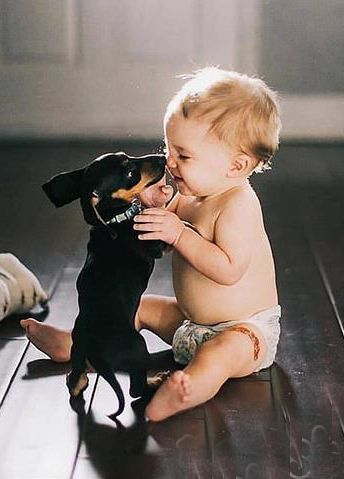
Sam: Wow, Lincoln, this is actually a... wait ammunition for what exactly?
Ana: Clearly you are a dog lover.
Sam: I see where this is going, the answer is no.
Ana: We'll see.
What's your wallpaper image?
Ana: *cringes and eyes Sam wearily*
Sam: *head falls back onto the chair* How many times have I asked you to change it?
Ana: Well we haven't gone back to work yet, so I don't see a reason.
Sam: You mean Mase and Mick aren't enough reason?
Ana: *shrugs shoulders* They never look at my phone.
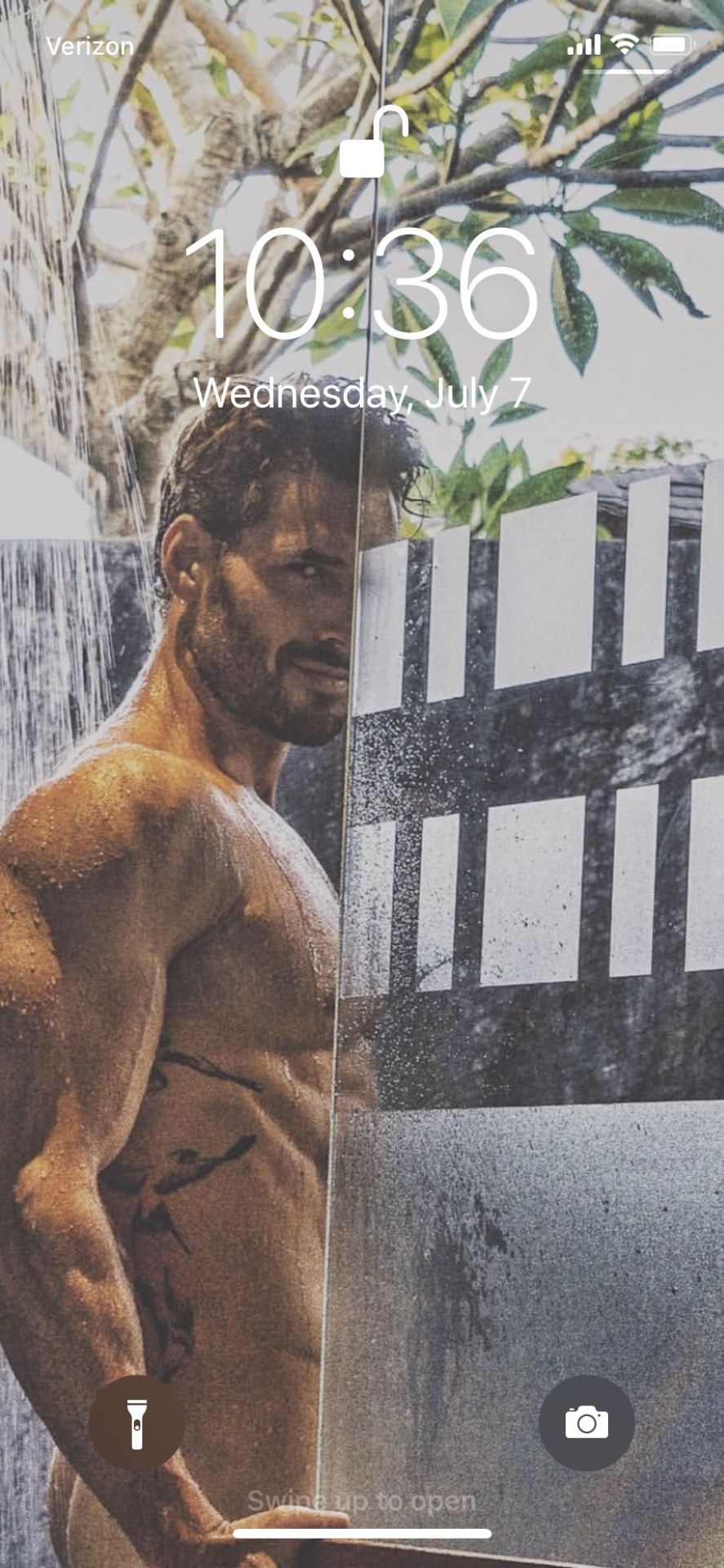
Sam: Can you please change it now?
Ana: Yes I will. *puts hand up to block Sam's view and whispers* I'm not going to change it.
Sam: I am literally sitting right here.
Ana: *shrugs shoulders* I'm not sorry.
Contact Name and Photo for Sam:
Sam: Is it safe to assume you you haven't changed that one yet either?
Ana: I plead the fifth.
Sam: What am I going to do with you?
Ana: I can't help that I married the hottest man in the world. You're sexy babe, get over it.
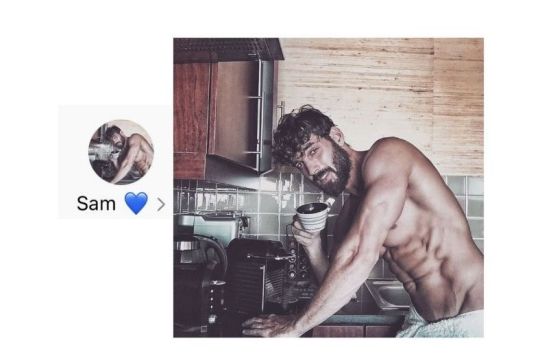
Sam: Now these photos are just out for the world to see.
Ana: Flaunt what you got.
Sam: *Looks away to hide the smile on his face*
Top Three Photos Results when you Google Sam:
Ana: Ooo, this is fun! I haven't Googled you in a while.
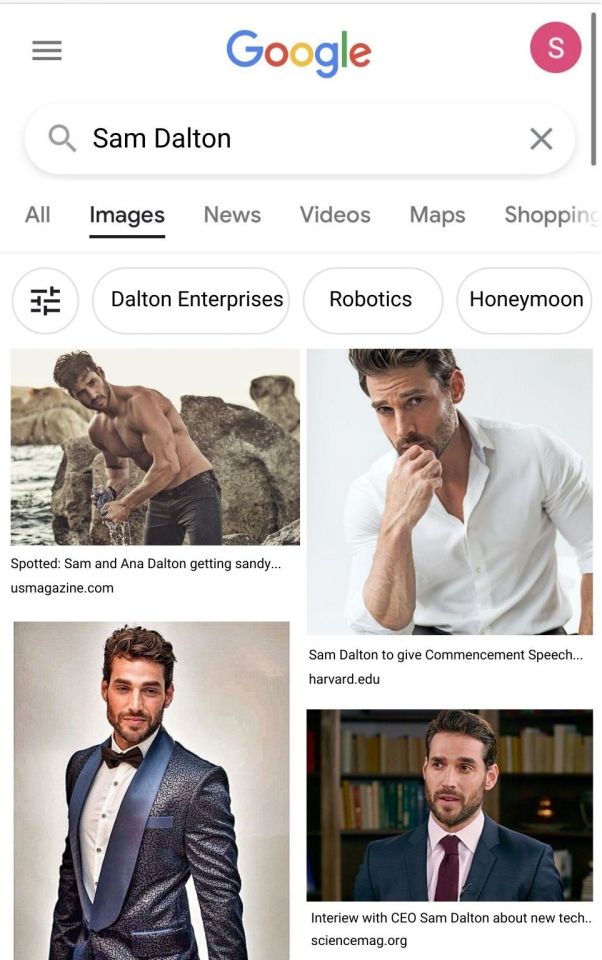
Sam: What in the... that first photo?
Ana: Look like the pap found us on our honeymoon. Oo! But look at this second one, you are so broody. Out of all the photos that they chose for that article, they had to choose one without you smiling.
Sam: But what about the first photo?
Ana: And this is that interview you did with Science Mag, gosh you look so handsome.
Sam: Sam and Ana Dalton spotted getting sandy...' that was supposed to be a private beach!
Ana: *shrugs shoulders* No press is bad press right?
First Picture of or with him that you uploaded to Social Media:
Sam: Now this one I can get behind.
Ana: Will always be one of my favorite photos of us
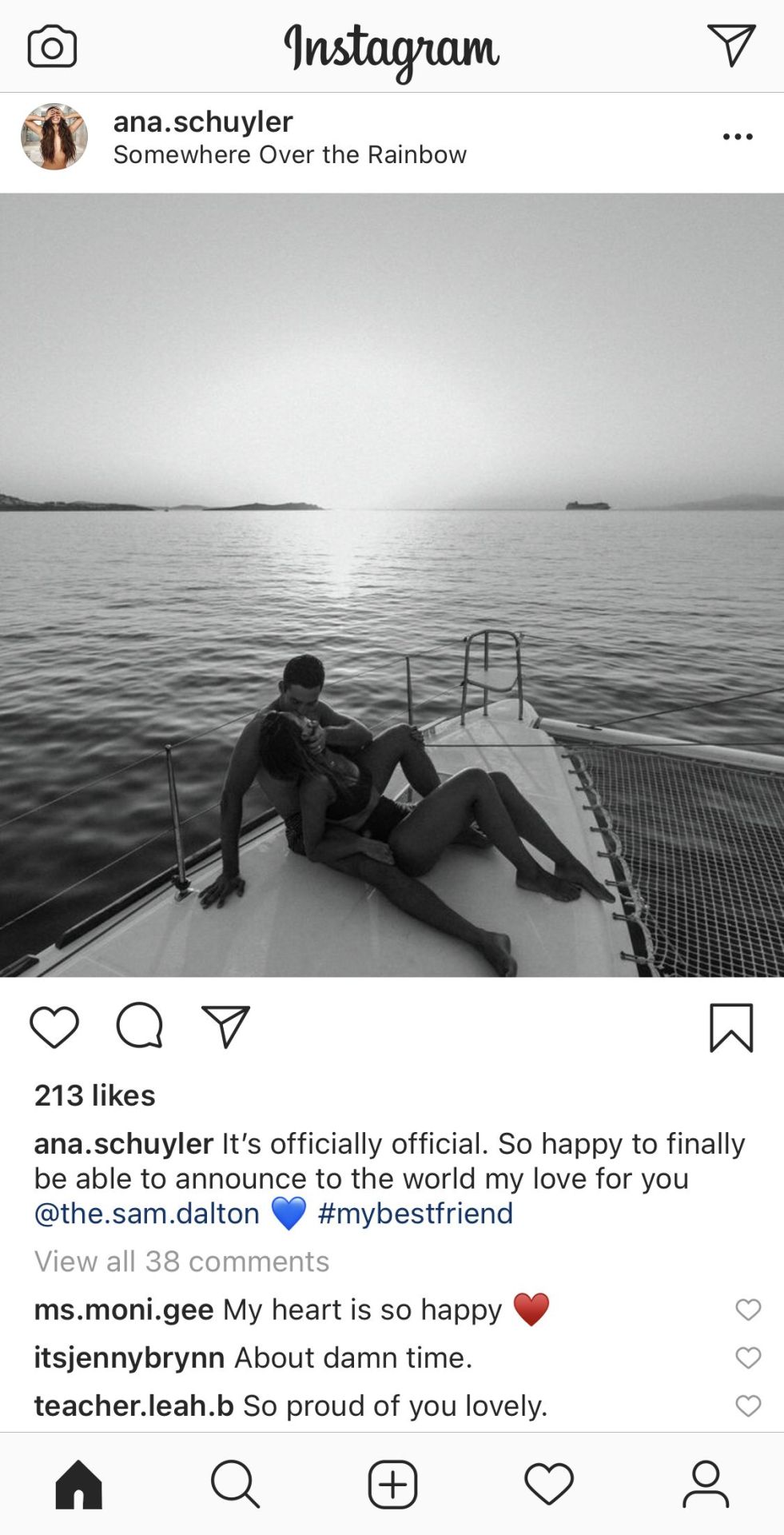
Sam: Yep, one of the greatest days of my life, finally being able to show you off. *grabs Ana's hand and squeezes*
Ana: *leans in and presses a soft kiss to his lips* Mine too.
For Sam:
Favorite Childhood Photo of Your Spouse:
Sam: Alright, it's my turn.
Ana: I know you well enough that you won't share anything embarrassing.
Sam: Yeah, yeah. This is easily one of my favorite photos of you.
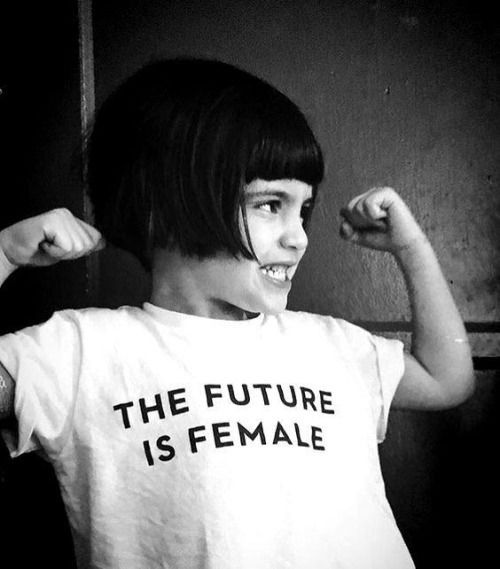
Ana: Oh! I can't even with this. Wow.
Sam: You were always going to change the world, I am just so grateful you chose me to do it with.
Ana: *blushes* Stop it. *slaps Sam's knee*
What's your phone wallpaper image:
Sam: It's so hard for me to choose just one, so it changes almost weekly, and unlike my beloved wife, I keep it professional.
Ana: *rolls eyes*
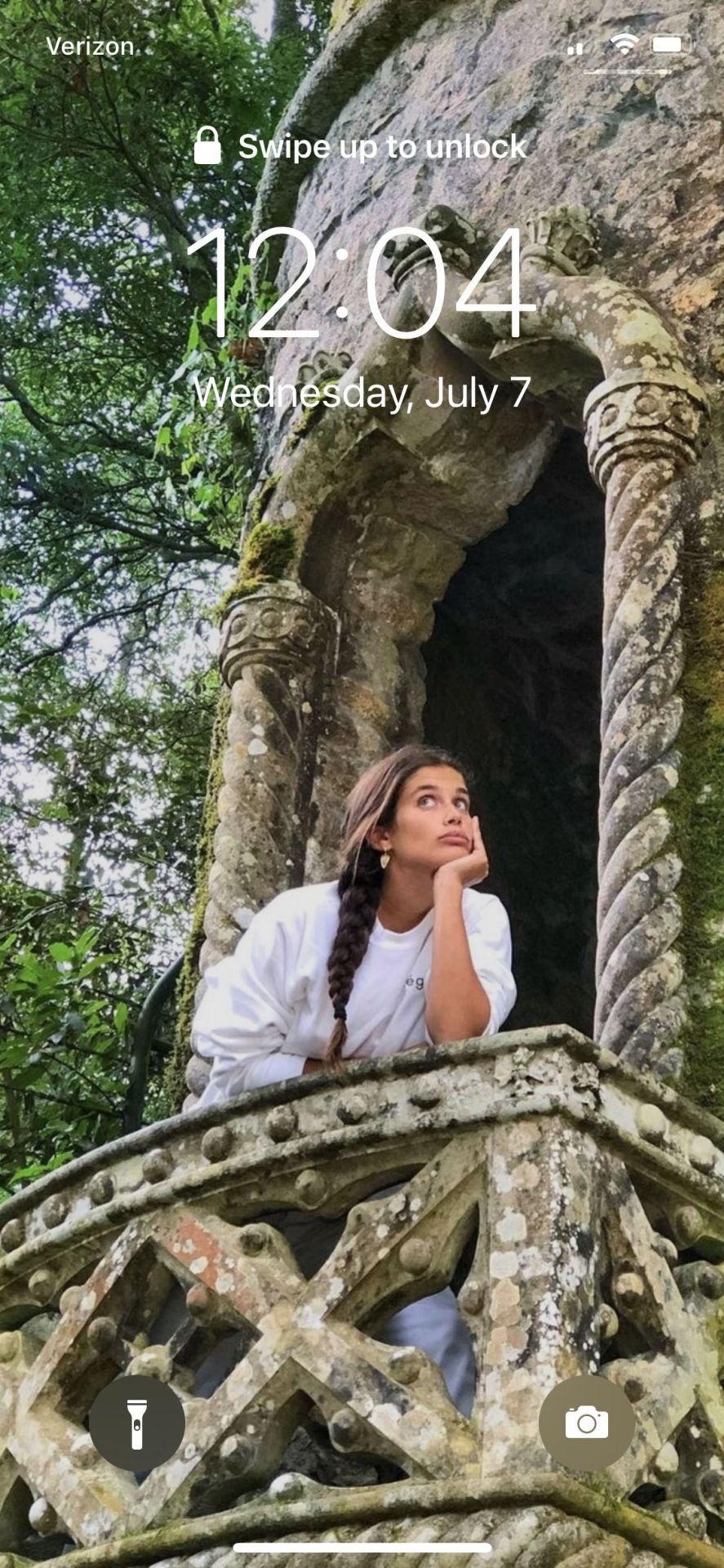
Ana: Aww! When we were in Bali!
Contact name and photo for your spouse:
Sam: One of the first photos that I took of you after you became my wife.

Ana: I knew you were going to make me blush.
Sam: It's my number one job, because I am addicted to that color on your skin.
Ana and Sam: *exchange heated glances before Sam clears his throat and looks back at Bree*
Top Three photo results when you Google your spouse:
Ana: Oo, let's see!
Sam: There better not be any photos of you in a bikini in here.
Ana: Just search!
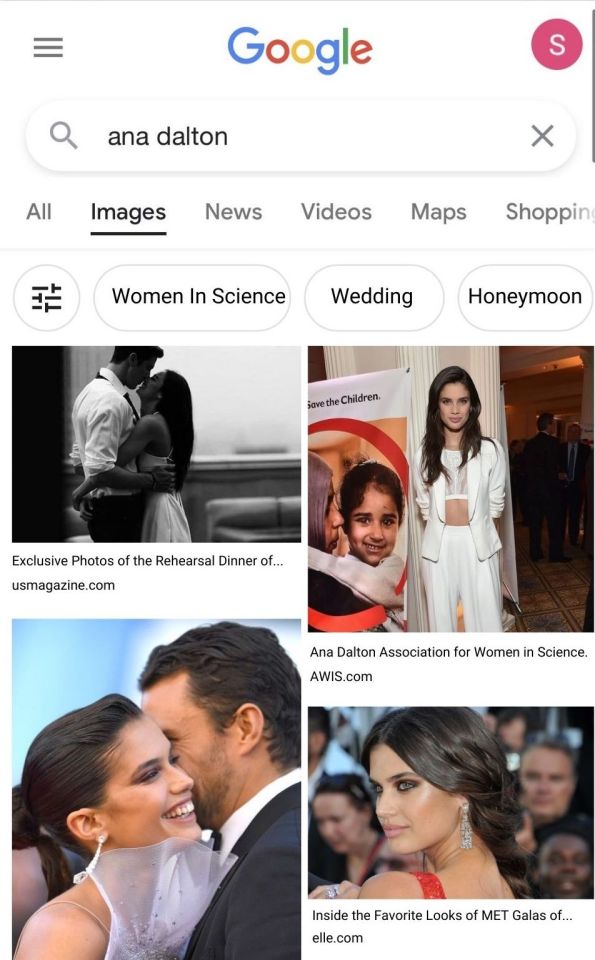
Sam: That's more like it. My wife being the beautiful, bad ass woman she is.
Ana: Aw, two photos of us! Damn, these are good.
First picture you ever took of your spouse:
Ana: I think I know which one this is.
Sam: Do you now? *scrolls through phone*
Ana: Italy, at the Duomo.
Sam: *holds up phone*
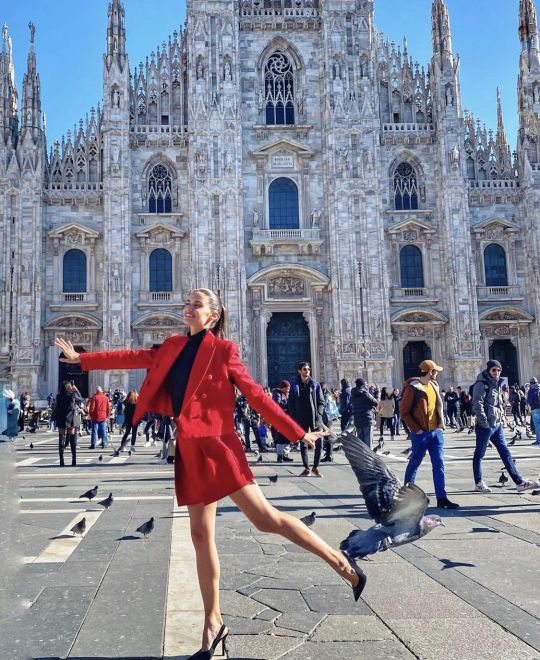
Ana: See! I told you.
Sam: I remember this day so vividly, Carter had the boys, and we went and explored Milan. You were so happy.
Ana: We were so happy. *grabs Sam's hand*
***
Y'all that was a lot of phone, but a lot of work. Hope you enjoyed reading as much as I enjoyed writing.
Tagging my edit AND fic list below: *sorry if it bothers anyone*
@jamespotterthefirst @txemrn @secretaryunpaid @pixie88 @thefrenchiemama @sfb123 @mainstreetreader @shewillreadyou @khoicesbyk @lady-calypso @somersetmummy @melalicious8383 @chrissythadon @shannonwrote @jerzwriter @kat-tia801 @thefirstcourtesan @shanzay44 @queenrileyrose @forallthatitsworth @audburn @itsjustwinter @jennieausten@gardeningourmet @forallthatitsworth @nestledonthaveone @obsessedwithdool @wanderingamongthewildflowers @genevievemd
43 notes
·
View notes
Text
Reading not-Wednesday
After feeling sick for a while lately, I saw on doctor on Friday and discovered I have bronchitis! Which means this week has mostly been an excuse to sit still and read light-hearted things. What did you just finish? The Windfall by Diksha Basu. A light but charming novel about a middle-class Indian family who abruptly become fabulously wealthy when the father sells a website he developed. Mr and Mrs Jha – middle-aged, comfortable, traditional – decide to move from their old family apartment in East Delhi to a brand-new mansion in Gurgaon; the American equivalent might be a couple selling their Queens apartment to set up in a McMansion in Silicon Valley. This, of course, leads to cultural clashes both funny and sad, from broken ties with old friends to an ever-escalating game of financial one-upmanship with the new neighbors. Meanwhile, their son Rupak is attempting to acquire a MBA from an American university. "From Cornell", the elder Jhas like to say at first, when they're showing off their upward mobility; "from the nearby Ithaca College", they say later, when it becomes clear that having a failure of a son is even more of an indication of wealth – after all, only the really rich can support useless offspring! Rupak himself strives to chose between two romantic possibilities: the white Elizabeth (Rupak assumes his parents would never approve of him dating an American, while Mr Jha secretly longs for a white daughter-in-law to humblebrag about) or the Indian Serena (who, despite being the niece of a family friend and fellow Delhite, culturally comes from ivory-tower artists who are possibly even more foreign than the Americans). None of the characters are particularly three-dimensional, but then, it's not really that sort of book; it's more interested in recognizing certain real-life types of people and having a gentle laugh at them than exploring the deep personal ramifications of sudden wealth. It's also an excellent book for Westerners despite being set almost entirely in India. Basu has a subtle but deft hand at explaining various cultural allusions without exoticifying them. For example, at one point Serena sends a joking text to Rupak: Have you seen all the places in Collegetown charging $5 or more for turmeric milk? Good old haldi doodh that our mothers make every day. Forget banking, that should be your next big business idea—something from our childhood at marked-up prices. I’m thinking Maggi Ramen. Wait, that might actually be a good idea. Look at that! Providing a translation and context for "haldi doodh" in very naturalistic-sounding dialogue, adding "Ramen" to the brand-name "Maggi" so that it becomes something recognizable even to someone who's never been to India, and all without alienating a reader who's already familiar with both. It's such a minor thing to point out, but I noticed Basu doing this work in several places, and I'm very impressed at how she manages to speak to two audiences at once. Anyway! It's fun, it's breezy, and it's not too serious: I recommend it. I read this as an ARC via NetGalley. An Extraordinary Union by Alyssa Cole. A romance novel set during the American Civil War. Elle Burns, a black woman with photographic memory, works as a spy for the Loyal League, a (fictional? I think?) network of black men and women working to end slavery. Her first independent mission requires her to travel to Richmond in the opening days of the war, where she goes undercover as a slave in the house of a Confederate senator. She soon meets Malcolm McCall, a confederate soldier who is strangely kind to her – and who turns out to be a spy himself, employed by the Pinkerton Detective Agency to gather information for Lincoln. Their immediate attraction to one another is constantly hampered by distrust, the need to maintain their cover stories (which includes Malcolm's flirting with the senator's daughter), rumors of the Confederacy developing a new superweapon, and general social stigma (even without the complications of spies and war, an interracial relationship in the 1860s isn't exactly easy or welcome). There are kidnappings and burning buildings and gunshot wounds and dramatic escapes to add adventure to the love story, but ultimately it is very much a love story. This was a great book, but unfortunately it wasn't quite as great as I had wanted it to be. I can't quite put my finger on why – maybe I needed slightly fuller characterizations? a longer timespan for the relationship to develop? richer dialogue? maybe my expectations were just too high? – and I absolutely don't want to discourage anyone from reading it. It's great! It's just not, you know, the GREATEST. Although bonus points for including a slightly fictionalized version of the story of Robert Smalls! I read this as an ARC via NetGalley. Dearest Rogue by Elizabeth Hoyt. A historical romance, set in England in the mid-1700s. Phoebe is the younger brother of a Duke (himself the star of the Regency Batman! romance I read last year) and has slowly been going blind for the last decade. In response, her brother hires a bodyguard, Captain James Trevillion, to follow her around everywhere and keep her from danger. Although since her brother hardly ever lets her leave the house and even then only to specific, sheltered events it seems a bit like overkill, but then overprotective older brothers: what are they for other than giving heroines a reason to rebel? Unfortunately for Phoebe, her brother seems to be proven correct when a gang of men attempt to kidnap her for mysterious reasons. Phoebe's need for independence and James's need to protect her provide a nice set of conflicts for them to resolve as they slowly start to see one another as friends (and more!) rather than obstacles. Phoebe's youth, status, and cheeriness are contrasted with James's age, cynicism, and working-class-ish origins, so that even once they finally admit their feelings they can't immediately hop into marriage. They have nice chemistry, but my favorite part of the book was Phoebe herself. Here's a scene I feel captures her character very well (she and James are pretending to be married for the purpose of traveling together): “And, just for you, I’ve ordered a mild ale instead of wine,” he said. “Have you?” “Much against my better judgment. It’s a common drink, my la—ahem, wife, and I cannot think it’ll be pleasing to your palate. Although,” he added under his breath, “considering where we are, the beer is probably better here than the wine.” She brightened at the prospect of a new experience. “Then I must taste it at once.” “It’s right here.” He took her hand and placed it on a pewter tankard. “To your health, husband,” she said solemnly and took a sip. Or rather tried to, for her nose seemed to be buried in foam. She inhaled in surprise—not the best thing to do—coughed, and then sneezed. “I do beg your pardon,” Captain Trevillion said, and she couldn’t help noticing that his voice was oddly muffled. Phoebe sneezed again—rather violently—dabbed at her eyes and nose with her handkerchief, regained her breath, and immediately demanded, “Are you laughing at me?” “Never my… wife. Never,” he assured her, his voice shaking. He was. He was most certainly laughing. She sat up straight, threw her shoulders back, and brought the tankard to her mouth again. This time she kept her nose out of the way and delicately sipped through the foam. The beer was… well, sour. And oddly prickly on her tongue. She held it in her mouth for a moment, thinking, and then swallowed. “Well?” She held up a finger and took another sip. Sour. Yeast. Something earthy. And those funny little prickles. She swallowed and took another sip. Did she like the aroma? She’d smelled it all her life—most of the people of London drank beer—it was the common man’s water. That sour tang, so warm and strong. She plunked down her tankard. “I think… I think I shall have to experience it more.” “Why?” he asked. “If you don’t like it, then drink wine.” “I didn’t say I didn’t like it.” “Nor did you seem overcome with your enjoyment of it,” he pointed out drily. “It’s… different—very different—from anything I’ve ever tasted before,” she said, her finger tracing the cool metal of the tankard. “I’d like to try it again.” “If you wish to do so, then I’ll certainly obtain you beer at our meals while we travel, but I don’t understand. Why force yourself to drink what you don’t like?” “But I’m not forcing myself,” she returned, tracing the edge of the tankard, feeling the bubbles pop against her fingertip. “Don’t you see? I want to explore different things—food, places, people. If, after several tastings, I find I cannot stomach the beer, then I shall give it up. Often something tasted for the first time seems foreign to us—strange and off-putting. It’s only after repeated tries that one realizes that this new thing, this once-strange thing, is quite familiar now. Familiar and beloved.” Phoebe inhaled, her breath coming too quickly with the force of her argument. “To only try but once and declare a thing lacking… why, that’s quite cowardly.” Of course I love a character who is devoted to tasting new things! The scene also shows how Phoebe's blindness is handled narratively, which I was very curious about before reading. Would Hoyt pull out some weird stylistic device to get around describing things visually? No – as here, there's usually so much dialogue that the lack of visuals hardly makes a difference. Overall I think the issue of Phoebe's disability was very well-handled; it's easy to sympathize with her desire for autonomy, and yet she's very much not defined by her blindness. One could write the exact same book starring a sighted character without needing to change one detail of the plot – overprotected younger sisters are not exactly a rare character type. The blindness feels simply like a realistically-presented detail. The multiple kidnapping attempts and their ultimate resolution are a bit silly, but eh, it's a historical romance; I don't need the plot to be all that serious. I had fun and enjoyed the characters, which is all I ask, and this is an excellent example of the genre.
(DW link for easier commenting)
3 notes
·
View notes
Text
Feature: Wrong in Different Ways
“An accurate memory of the past would be depressing, probably.” – David Lynch One of the best jokes in the pilot episode of Twin Peaks occurred when Agent Cooper and Sheriff Harry Truman, at the end of a long day of detective work, return to the Sheriff’s Office to find a mounted deer head laying on its side. The odd response from a minor character (“Oh, it fell down”) underlines a lot of the initial appeal of the series: A seemingly innocuous moment executed with comedic pacing and an absurdity designed to relieve the tension built up from a string of traumatic plot revelations. It’s weird, but not “too weird.” It’s, in today’s language, quirky. The first two seasons of Twin Peaks are full of these kinds of moments. We have the legendary “damn fine” cups of coffee. We have Major Briggs’s extraordinary wisdom. We have Cooper’s played-for-laughs lesson on the nation of Tibet and the mystic knowledge he draws from it. And, as the second season burrows into its bizarre middle and late periods, we get super strength, aliens, and Confederate soldier amnesia. It’s a show whose metaphysics hinge on a dwarf who speaks backwards. These bits have lingered on as a 25-years-running set of passwords. How there was “a fish in the percolator” or how the owls are “not what they seem” or how “it is happening again.” These phrases have been passed along, referenced, parodied, remixed, rebuilt, paid forward into other works that have absorbed the show’s legacy. This tone — humorous, mysterious, offbeat — has been perhaps the most visible product of the show’s brief initial run. Nearly every beloved television series of the intervening generation, from Lost to True Detective to even Glee, has at some point been described as “like Twin Peaks.” But, within these sometimes scattered ideas about what the series may or may not represent, there begs another question: What do we mean when we say something is “like Twin Peaks”? --- Animation: Korey Daunhauer Other things that are like Twin Peaks: Wind blowing through a stand of Douglas Fir. A traffic light changing from yellow to red in the darkness. A ceiling fan turning, frighteningly, forever. When Twin Peaks first aired, I was four years old. I remember sneaking into the living room to see my mom watching the show and, on other nights, hearing Angelo Badalamenti’s music lurking outside my bedroom door. I remember catching a glimpse of Cooper in the Sheriff’s station, his eyebrows up in fear, and hearing synthesizer chords hanging in our hallway, moments that made my mom “afraid.” I remember being up later than I should have been. I remember the lights being off. All mundane, average things somehow made wrong by what was on TV. This, for me, is what I think of as being “like” Twin Peaks. Because when you talk about Twin Peaks, you are also talking about much more than its plot. Because when you talk about Twin Peaks, you are also talking about much more than its plot. There is the TV series, its companion movie, and their various release formats throughout the year. There is the fandom that blossomed around these two pieces of media and their various tie-ins (books, cassettes, merchandising). There is the career of one of its creators and how this single storyworld may or may not speak for the entirety of their body of work. There are GIFs, memes, theme parties, Etsy art, and SXSW pop-up events. There is Log Lady cosplay. In all this, it’s easy to lose track of the show’s plot: the murder mystery of teenage Laura Palmer, the small-town homecoming queen whose private life was (like those owls) not what it seemed. Alongside its endearing cast and twilight-Borscht Belt sense of humor, it was this mystery that first lured a large network audience to the series’s first season. And, as the reasons for the killing became more elliptical and less grounded to Earth (though maybe more poetically drawing from the show’s interest in the earth and nature), many of those same fans moved on to other fictional universes. In the immediate clearing wrought by Twin Peaks, we got Northern Exposure — also a show “like Twin Peaks” that my mother watched at night, though one that made her less “afraid.” Offbeat, quirky. Weird, but not too weird. --- Animation: Korey Daunhauer Also like Twin Peaks: A poker chip. The sound of neon crackling through a bar sign. Rope tied around a wrist. I have a screencap on my desktop of James Hurley — the series’s sensitive bad boy, as opposed to its other criminal bad boys or its demon-possessed bad boys — sitting on a hilltop overlooking the breathtaking view of the mountains bordering the town of Twin Peaks, his motorcycle parked next to him. In the context of the show, James and his motorcycle are sort of a duo (a theme explored with great detail in his much-derided road trip in season 2). In another scene from the pilot, when James drives off from his uncle Ed’s “gas farm,” he slips on a pair of sunglasses before riding away, like it’s no big deal. For a series whose aesthetic can feel so unique, so precisely defined, much about Twin Peaks feels like an echo of something else. James prefigures Nicolas Cage’s words from David Lynch’s Peaks-contemporary feature film Wild At Heart, where he declares, wonderfully, that his snakeskin jacket is a “symbol of my individuality and my belief in personal freedom.” Hurley, in his leather jacket, on his hog, wearing these shades, wearing his square jaw handsomeness, speaks just as clearly, and ridiculously, and earnestly, to his belief in personal freedom. For a series whose aesthetic can feel so unique, so precisely defined, much about Twin Peaks feels like an echo of something else. Twin Peaks often feels like it is either making fun of something or being deadly sincere about that same thing, oftentimes both at once. Even from the beginning, the dialogue is corny (“Quit worryin’ and start screwin’, Mr. Touchdown”) and many of the jokes don’t “work” in the way one might like them to. This, of course, is also much of what is “like” Twin Peaks: the gap, similar to irony but something much weirder, between what we expect and what we get. It’s disarming. It makes one pause and wonder. It messes deeply with one’s bearing for what, if anything, we’re supposed to be taking seriously here — and why some of these things might be taken more seriously than others. Why do we allow some of this to resonate and not the rest? What does it say about us if we can’t totally “go there”? What will people think of me if I don’t get it? --- Animation: Korey Daunhauer Another example from Lynch’s pilot that is “like Twin Peaks”: the scene when Laura’s friends first learn of her death in the middle of class. When this discovery comes — illustrated, crushingly, by Laura’s empty desk — her best friend and confidant, Donna, is moved to an explosion of grief. This meme-ready image, of actress Lara Flynn Boyle’s head tilted back in despair, openly weeping, has become an icon of something core to the identity of the Twin Peaks universe: the intrusion of a deep sadness into “normal life.” Maybe more than any violence or supernatural evil, it is this quality — the stuff that brings us to tears — that both disrupts and defines life in Twin Peaks. There are few other television shows or films that allow its characters more frequent and intense displays of things so easily repressed, of actual crying, of more opportunities to react to trauma with not just inner pain but a pandemonium of feelings: terror, rage, screaming. How does James react in this same scene? James, stone-faced, snaps his pencil in half. It’s quirky, and it’s somehow placed at exactly the wrong moment, the timing completely off. Also in this scene, which feels equally “like Twin Peaks” despite its seemingly frivolous nature: a poster on the back wall of Abraham Lincoln. --- Animation: Korey Daunhauer A lot of what we remember about Twin Peaks now is environmental. The red curtains of the Black Lodge and the roadhouse stage, the zig-zag of black and white, tall trees filtered through fog. All of its objects. Rewatching the series, I tried to make a list of every “object” that felt important. Three episodes in, this list began to feel psychotic: ashtrays, gas pumps, jukeboxes (plural). I wrote the word “lumber” a dozen times. Everything — every “thing” — seemed to carry another meaning. Even the most basic details, after a few hours, vibrated differently. Each lamp felt ominous. Twin Peaks has hung around for almost three decades partially for this reason. The lasting mystery of the show is less in the question it was marketed under — “Who killed Laura Palmer?” — but in that question of what, exactly, we’re even seeing. Its audience returns to these episodes again and again, because something about them feels unfinished. That creeping feeling that something is not right here, that things have gone terribly, cosmically wrong — and that it still (as James puts it) “makes some kind of terrible sense.” The lasting mystery of the show is less in the question it was marketed under — “Who killed Laura Palmer?” — but in that question of what, exactly, we’re even seeing. That the series often asks you to largely throw away logic and to be swept up in its senses, “terrible” or otherwise, is also what has given the show its long life. Lynch and creative partner Mark Frost don’t seem interested in telling the story of Laura Palmer’s murder to “say” anything about her death, or about death in general. They tell this story because it feels a certain way. The haze of American upper-middle-class suburbia — caught temporally between the era of the show’s premiere, the 80s, and that of Lynch’s own childhood, the 50s — is used for a texture of banality, the “normal world” terrorized by the show’s supernatural forces. Like much of Lynch’s work, this resonates the deepest as a kind of dream place, perhaps his attempt to rebuild and remake the specifics of his own youth in order to reveal the sensations he felt buried in there. And yet: while Twin Peaks may not be the real world, it’s also not only fantasy. And it’s certainly not universal. It is a specific vision with precise references to an era its creators grew up in: neon diner signs, girls in sweater sets, sleazy rock & roll, wall-to-wall carpeting, cassette tapes, the highly stylized signifiers of a mid-century middle-class American culture. These references don’t belong to everybody, but they do belong to the person who dropped a teenager’s murder into the middle of them. They resonate not because they’re ours, but because we can tell they are somebody’s. Many of us might like the chance to revisit and rebuild our childhoods; Lynch just has the privilege of giving us his childhood back to us. Twin Peaks might not always ask you to think, but it always asks that you feel — deeply, confusingly, uncontrollably. Fitting for a story about spirit possession and a community unprepared to deal with it, when Twin Peaks works, it can seem like a thing that is being done to us, intruding in our own normal spaces, flipping them. Creeping down the hallway. Driving us to host costume parties. Still making us “afraid.” Twin Peaks’s power is that it makes things wrong, but it never makes them right again. The show just continues making them wrong in different ways. http://j.mp/2rc7ghY
0 notes